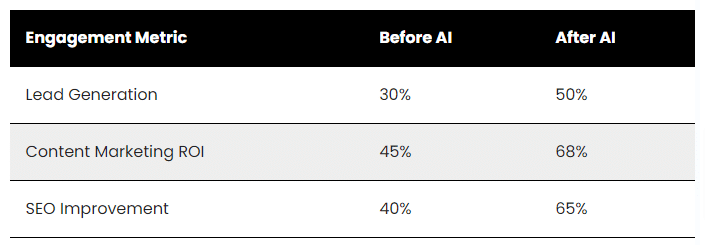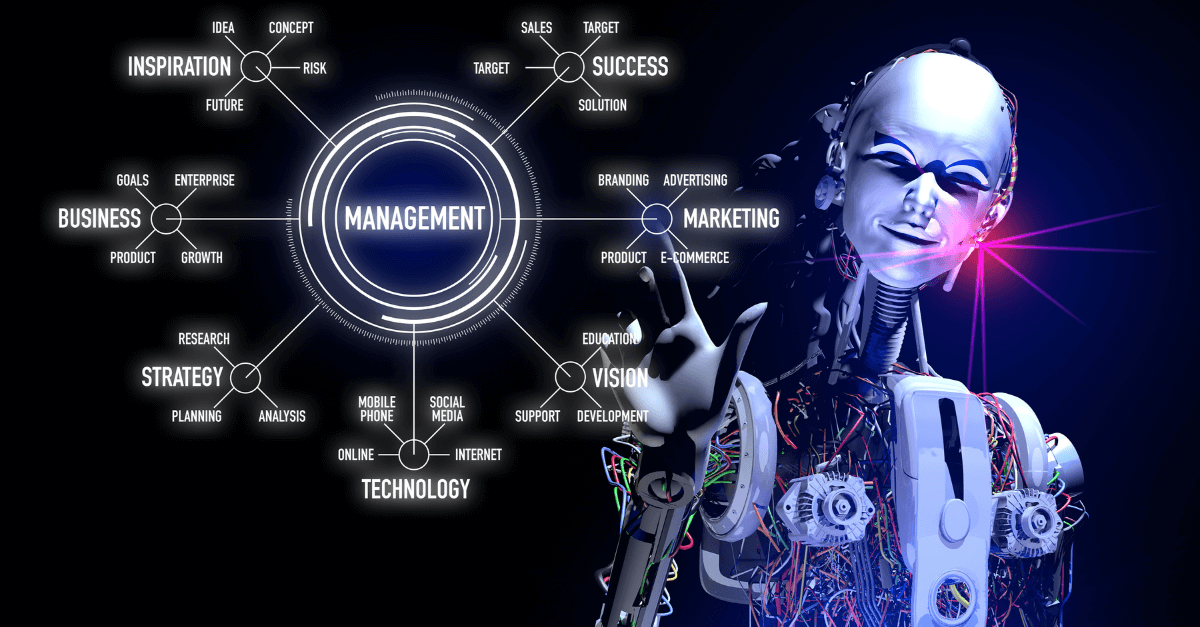
By Glen Williams
So what is AI Marketing?
AI Marketing is the integration of artificial intelligence technologies into marketing strategies to enhance and automate various marketing processes. It leverages machine learning, big data, and other AI technologies to understand customer behavior, predict trends, and deliver personalized experiences. This modern approach transforms traditional marketing by incorporating smarter, data-driven methods.
In today’s rapidly evolving digital landscape, AI marketing allows businesses to stay competitive and efficient. It provides a deeper understanding of customer needs and preferences, enabling marketers to craft tailored campaigns and engage with their audience more effectively. By utilizing AI, businesses can optimize their marketing efforts, ensuring they reach the right people at the right time with the right message.
Introduction to AI Marketing
AI marketing employs artificial intelligence technologies like machine learning to enhance marketing efforts by simulating human intelligence. It enables marketers to automate tasks, analyze data, and deliver personalized experiences. According to recent findings, AI-driven marketing not only streamlines strategies but also boosts efficiency and engagement, making it essential for business growth. With AI’s ability to predict trends and create tailored content, businesses can achieve a significant edge in today’s competitive landscape.
Personalized Customer Experience
 In today’s digital age, crafting a personalized customer experience is crucial for businesses aiming to stand out. AI marketing allows for an unprecedented level of personalization by leveraging artificial intelligence and machine learning to understand and anticipate individual customer preferences. With AI, companies can tailor marketing strategies that resonate on a personal level, enhancing customer satisfaction and loyalty.
In today’s digital age, crafting a personalized customer experience is crucial for businesses aiming to stand out. AI marketing allows for an unprecedented level of personalization by leveraging artificial intelligence and machine learning to understand and anticipate individual customer preferences. With AI, companies can tailor marketing strategies that resonate on a personal level, enhancing customer satisfaction and loyalty.
AI Tools for Personalization
- iovox: A powerful tool that enhances customer interactions through features like Transcription and Conversational AI, providing insights into customer preferences and enhancing call experiences.
- WebConnect: This tool allows businesses to add call buttons directly to their web pages, facilitating seamless and personalized customer contact.
- WebCallBack: Empowers potential leads to request calls at their convenience, ensuring a personalized and timely response that meets their specific needs.
These AI-driven tools illustrate how businesses can effectively implement AI to tailor marketing efforts, leading to enhanced engagement and increased return on investment. By adopting AI technologies, businesses are better positioned to meet the evolving demands of their customers.
Content Optimization with AI
In the realm of marketing, AI-driven content creation is transforming how businesses produce and distribute content. By leveraging machine learning and natural language processing, AI tools such as Content Shake AI, Jasper, and Frase empower marketers to generate high-quality content with remarkable efficiency and scalability. As John Doe, a leading marketing strategist, puts it, “AI is not just a tool; it’s a game-changer in content creation and distribution.”
These tools enhance productivity and ensure brand consistency across platforms while enabling hyper-personalization. This allows content to be tailored to specific markets and personas, maximizing engagement.
Statistics underscore the impact of AI on content engagement. According to recent data, companies utilizing AI have seen up to a 50% increase in leads. Furthermore, 68% of businesses report a rise in content marketing ROI, and 65% experience improved SEO results.

By integrating AI into content workflows, marketers can streamline processes and achieve significant improvements in performance and engagement, solidifying their competitive edge in the market.
Data-Driven Decision Making

In the fast-paced world of marketing, leveraging AI to analyze market trends and customer behavior is crucial for staying ahead. AI platforms such as the Enterprise GenAI Platform and AI Copilot for Sales offer businesses the ability to sift through vast amounts of data to pinpoint trends and optimize strategies.
By utilizing AI, companies can:
- Develop data-driven strategies by analyzing real-time datasets.
- Perform sentiment analysis to tailor marketing messages.
- Streamline marketing data analysis for quick identification of trends.
- Optimize campaigns to maximize return on ad spend (ROAS).
- Segment customers for personalized marketing efforts.
- Leverage predictive analytics for competitive advantage.
- Integrate with existing tools for seamless insights.
Real-World Success Story
Fortune Analytics, a collaboration between Accenture and Fortune, exemplifies the power of AI in data-driven decision-making. This AI-driven platform transforms extensive datasets into actionable insights, offering business leaders the ability to generate graphical data visualizations and access immediate insights. In just 10 months, Fortune Analytics has redefined user engagement and strategic decision-making, showcasing how AI can provide a competitive edge and revolutionize business intelligence.
Automating Marketing Processes
In today’s fast-evolving business landscape, automating marketing processes with AI is not just a trend; it’s a necessity. AI can take over numerous repetitive marketing tasks, freeing up valuable time for your team to focus on strategic initiatives. Key areas where AI can automate marketing tasks include:
- Content Creation: Quickly generate social media posts, infographics, and video scripts.
- Customer Data Segmentation: Effortlessly manage and analyze vast datasets.
- Personalization: Craft personalized marketing experiences to boost engagement.
- Campaign Optimization: Refine strategies with data-driven insights.
- Virtual Assistants: Automate customer interactions with AI-powered chatbots.
The benefits of AI automation extend beyond task management. According to Salesmate, businesses can see a significant reduction in costs, with more efficient budget allocation across various marketing tactics. In fact, leveraging AI for marketing can reduce costs by up to 30% while increasing efficiency and Return on Investment (ROI). By embracing AI-driven automation, your business can achieve enhanced customer engagement and a competitive edge in the market.
Enhancing Customer Engagement
In the quest to boost customer interaction and satisfaction, AI tools have emerged as powerful allies. These tools analyze customer data, predict behavior, and personalize interactions, paving the way for improved customer engagement strategies and higher satisfaction rates. By leveraging artificial intelligence, businesses can deliver customized experiences that resonate with individual preferences, leading to increased loyalty and retention.
AI Engagement Tools
AI tools such as Cloud Help Desk and Remote Support streamline customer service through efficient ticketing systems and real-time assistance. These innovations not only enhance the customer experience but also optimize operational efficiency.
Brands like Yum Brands are leading the way in utilizing AI for enhanced engagement. As the parent company of Taco Bell, Pizza Hut, KFC, and Habit Burger & Grill, Yum Brands has reported impressive results, with double-digit increases in customer engagement. Their AI-driven marketing campaigns customize emails by adjusting timing, subject lines, and content to deliver more relevant offers. Moreover, their integration of AI into mobile apps and drive-throughs tailors menu displays based on purchase history, demonstrating the transformative potential of AI in the retail sector.
FAQs on AI Marketing
As businesses look to integrate AI marketing into their strategies, questions and concerns inevitably arise. Here are some of the most common queries:
- How can AI marketing benefit my business? AI marketing enhances personalization, improves customer engagement, and optimizes marketing efforts by analyzing data and predicting customer behavior.
- What AI tools should I use? Consider using tools that focus on customer data analysis, behavior prediction, and personalized interactions to significantly boost satisfaction.
- Is AI marketing expensive? While initial setup costs can be high, AI marketing often reduces long-term costs by automating processes and increasing efficiency.
- Will AI replace human marketers? “AI is a tool, not a replacement.” It assists marketers by handling repetitive tasks, allowing them to focus on creativity and strategy.
- How do I measure AI marketing success? Track metrics such as customer engagement rates, conversion rates, and overall ROI to evaluate the effectiveness of AI marketing strategies.
Understanding these facets will help you effectively implement AI in your marketing strategy, paving the way for a more personalized and efficient approach to customer engagement.
Conclusion and Call to Action
Incorporating AI marketing into your business can significantly elevate customer engagement, streamline processes, and personalize customer experiences. As demonstrated by successful brands like Yum Brands, leveraging AI can lead to substantial improvements in marketing effectiveness and customer satisfaction. Now is the time to embrace AI strategies and transform your marketing efforts. Begin today to gain a competitive edge in the ever-evolving digital landscape.

